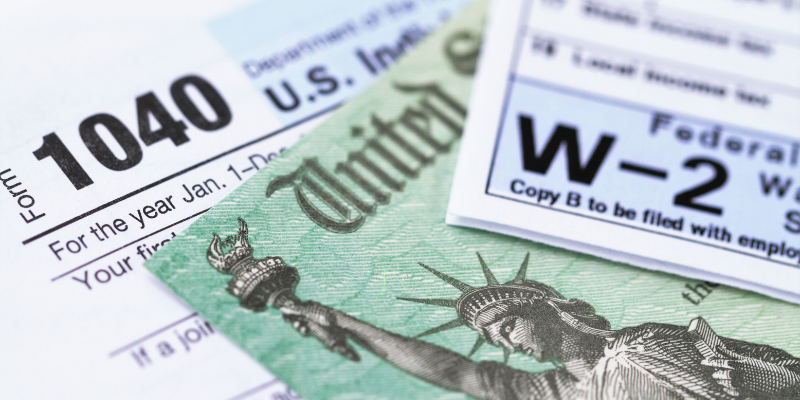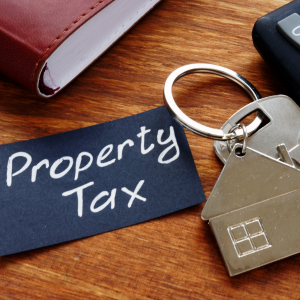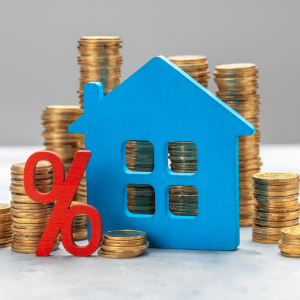
Selling a home in Vancouver, WA? Sell With Isaac clarifies tax responsibilities. Sellers pay the Real Estate Excise Tax, and federal capital gains tax may apply, though many qualify for exclusions.
Understanding Capital Gains Tax on Property Sales in Vancouver, Washington
When selling a home in Vancouver, Washington, it’s important to consider capital gains tax ramifications. Capital gains tax is charged on the profit earned by selling an asset that has increased in value.
Sellers in Vancouver, which is part of Clark County and subject to Washington State law, must account for both federal and state tax liabilities. The IRS mandates that homeowners pay federal capital gains tax if their profits surpass specific thresholds: $250,000 for single taxpayers and $500,000 for married couples filing jointly.
These exceptions apply only if the homeowner has resided in the home as their principal residence for at least two of the previous five years before selling. For properties that do not meet residency requirements or are investment properties, earnings may be fully taxable.
Although Washington does not have an individual income tax, other factors, such as depreciation recapture, can impact your financial situation. When selling a house in Vancouver, consult with a real estate professional or tax advisor who is familiar with local legislation to help you manage these difficult issues.
How to Calculate Taxes Owed From a House Sale
When selling a house in Vancouver, Washington, you need to know a few important things in order to figure out how much tax you owe. First, buyers need to think about capital gains tax, which they will have to pay if the property’s value has gone up since they bought it.
To find this, take the sale price of the home and subtract the original buy price plus any improvements that were made. The amount that is left over is the capital gain, which may be taxed by the federal government if it is higher than certain limits.
Homeowners can usually exclude up to $250,000 in capital gains if they file their taxes alone or $500,000 if they are married and file jointly, as long as they meet certain residency requirements. In addition to federal taxes, sellers in Washington should think about any state or local taxes that might apply to the sale of their property.
Washington doesn’t have a state income tax on personal income, but it’s important to find out if there are any local taxes or county-specific rules about buying or selling a home. When figuring out how much tax you owe on the sale of your Vancouver home, talking to a tax expert can help you make sure your numbers are correct and that you follow all the rules.
Important Tax Deductions for Home Sellers

It can make a big difference in your finances if you know about the important tax breaks you can get when you sell your home in Vancouver, Washington. Costs of changes made to the home to make it more valuable, like remodeling the kitchen or adding on to the bathroom, are a big tax break.
You can add these costs to the price you paid for your home in the first place, which will lower your capital gains when you sell it. Sellers can also deduct certain costs related to selling from their taxes. These include commissions paid to real estate professionals, fees for advertising, and legal fees spent during the sale process.
Mortgage interest paid up until the date of sale is another possible deduction that homeowners can use to lower their taxable income. There is another tax break for homeowners who meet certain criteria set by the IRS. This is called the primary residence exclusion. It lets people exclude up to $250,000 (or $500,000 for married couples filing jointly) of capital gains from their taxable income if they lived in and owned the property for at least two of the last five years before selling it.
Sell your home for cash in Vancouver or other cities and maintain accurate records of these benefits. When selling your Vancouver property, you can save a substantial amount on your taxes.
Navigating IRS Guidelines for Property Sales Taxes
When selling a house in Vancouver, Washington, it’s important to know the IRS rules for property sale taxes so that you don’t get stuck with extra fees. In the US, people who sell their main home are usually required to pay capital gains tax on any money they make from the sale.
If a homeowner meets certain ownership and location requirements, the IRS says they can exclude up to $250,000 of gain if they file as a single person or up to $500,000 if they are married and file jointly. To be eligible for this exclusion, the sellers must have owned and stayed in the home as their main home for at least two of the five years before the sale.
To correctly figure out possible taxable gains, it’s important to keep careful records of the purchase price, any improvements made to the property, and the costs of selling it. If a seller in Vancouver knows these rules, they can better handle their tax responsibilities and get the most out of the exclusion benefits when they sell their home.
State-Specific Tax Implications for Washington Homeowners
When selling a home in Vancouver, Washington, homeowners should know that state rules have particular tax effects. Washington is different from a lot of other states since it doesn’t charge a state-level capital gains tax on real estate sales. This might have a big effect on how much tax you owe overall. If the profit from the sale is more than certain amounts, which are usually $250,000 for single filers and $500,000 for married couples filing joint returns, sellers still have to pay federal capital gains taxes to the IRS. Washington doesn’t have a state income tax that directly affects buying a home, but sellers do have to pay excise taxes. The seller is responsible for paying the Washington State real estate excise tax (REET), which is dependent on the price the property sells for. Prices range from
1% to 3%. Clark County’s local governments may add more taxes to this rate. Sellers need to completely understand their responsibilities to avoid unexpected financial problems during or after the sale. If you want to sell property in Vancouver, you need to go to a local real estate professional or tax counselor to learn about these rules that only apply in that state and make sure you follow all of them.
Strategies to Minimize Taxes When Selling Your House
When selling a home in Vancouver, Washington, it is critical to investigate techniques for minimizing taxes and increasing profits. One effective technique is to use the primary residence exclusion, which allows homeowners to deduct up to $250,000 in capital gains for single taxpayers and $500,000 for married couples filing jointly if certain conditions are met.
To qualify, you must have owned and lived in the property as your principal residence for at least two of the five years preceding the sale. Furthermore, consider strategically timing your sale; selling during a lower-income year may reduce your tax bill due to lower tax levels.
Another useful technique is to keep thorough records of any home renovations completed over the years, as these expenses can be added to your house’s cost base, lowering overall capital gains. Consult a tax specialist for individualized advice and guidance on navigating Washington’s state and municipal property taxes.
Comparing Federal and State Tax Requirements for Property Sales
When you sell a house in Vancouver, Washington, you need to know the differences between what the federal government and the state government expect when it comes to property taxes. If you sell your home for more than you paid for it, you may have to pay capital gains tax at the government level.
There are some exemptions that the IRS gives out. For example, if you’ve lived in your home for at least two of the last five years, the main residence exclusion can greatly reduce or even erase your taxable gains. But these exemptions are subject to certain rules and limits on how much money can be made.
Washington State, on the other hand, does not have an individual income tax, so people do not have to pay a capital gains tax when they sell their homes. Still, buyers should be aware of other costs that might come up, like state-level excise taxes that might apply during real estate deals.
If you want to sell your home in Washington, Sell With Isaac will guide you through all federal and Washington State regulations to ensure you receive the best possible price. We buy houses in Battle Ground and the surrounding areas.
How Home Improvements Impact Your Tax Obligations on Sale

It’s important to know how home changes affect your taxes when you sell a house in Vancouver, Washington. People often make improvements to their homes to make them worth more, but these changes can also affect the capital gains tax they have to pay when they sell their homes.
The Internal Revenue Service (IRS) lets sellers change the home’s cost basis by adding the prices of certain improvements, like new roofs or kitchen remodels. This could lower the amount of capital gains that are taxed. To back up any claims during a tax audit, it’s important to keep detailed records and receipts of these changes.
Some upgrades that make a home more energy-efficient may also be eligible for extra tax credits or deductions, which would change the total amount of tax owed even more. Homeowners can get the best financial results during the sale process by making good use of these changes in a way that follows IRS rules.
Common Mistakes to Avoid When Calculating House Sale Taxes
When calculating house sale taxes in Vancouver, Washington, it is critical to prevent frequent errors that can lead to financial problems. One common mistake is failing to account for capital gains tax, which occurs if your home has significantly increased in value since purchase.
The principal dwelling exception only applies to a maximum of $250,000 for single filers and $500,000 for married couples filing jointly. Another mistake is to ignore qualified deductions that might lower taxable gains, such as home repair expenditures and selling expenses like real estate commissions or legal fees.
It’s also vital to distinguish between state and federal tax obligations. Washington does not levy a state income tax on capital gains from home sales, but federal taxes still apply. Inaccurate record-keeping sometimes leads to errors when establishing the cost basis of the property, resulting in either overpaying or underreporting taxes payable.
When selling a home in Vancouver, consulting a tax specialist who understands local regulations can help you manage these intricacies and ensure that you are in compliance with all applicable tax laws.
What Tax Do I Pay When I Sell My House in Washington State?
If you are selling a home in Vancouver, Washington, you need to know what your tax responsibilities are. When someone sells a house in Washington state, they usually have to pay a tax called the real estate excise tax (REET).
It depends on how much the house sold for and if there are any city surtaxes that apply. It is important to know that if you sold your home for a big profit, you may also have to pay federal capital gains taxes. However, Washington state does not have its own capital gains tax on real estate deals.
Real estate lawyers or certified public accountants who know both federal and state tax laws about sales of homes in Vancouver, Washington, should be consulted by sellers to make sure they are following the rules and to avoid any unexpected fines. Knowing these duties will help the sale of your home go smoothly.
Who Pays the Transfer Tax in Washington State?

In Washington state, the obligation to pay the real estate excise tax (REET), commonly known as the transfer tax, generally rests with the seller when selling a home. The real estate excise tax is an essential factor in property transactions, determined as a percentage of the sale price.
This tax in Vancouver, Washington, and across the state finances vital public services and infrastructure initiatives. Sellers must consider this expense while strategizing their financial plans for selling a home.
Purchasers should be cognizant of this standard practice, although they are typically not liable for this specific tax. Both parties ought to confer with their real estate brokers or financial advisors to guarantee adherence to local rules and comprehend any potential ramifications on their real estate transaction.
Comprehending the responsibility for the transfer tax in Washington state helps streamline the house-selling procedure in Vancouver and ensures all parties are equipped for the related expenses.
The transfer tax is generally paid by the buyer and the seller or shared between both parties, depending on local regulations and the terms specified in the transaction agreement. For further details, please Contact Us at Sell With Isaac.
Who Pays Taxes on an Estate Sale?
When selling a home in Vancouver, Washington, understanding who is responsible for paying taxes on the estate sale is crucial. In Vancouver, as in other regions of Washington State, the seller usually has to pay some of the taxes that come with the sale.
One of these is the real estate excise tax (REET), which is based on the price of the property. The rate of the real estate excise tax might change based on the property’s valuation and where it is in Clark County.
Also, sellers may need to think about how capital gains tax may affect them if they sell their house for more than they paid for it. However, there are exceptions under federal tax law if certain conditions are met. Buyers, on the other hand, usually pay their part of closing fees but don’t immediately pay taxes on the sale of the home.
Both buyers and sellers need to talk to a real estate professional or a tax specialist to make sure they know all of their financial responsibilities during an estate sale in Vancouver, Washington.
Are you considering selling your home? Whether you want to sell quickly, avoid costly repairs, or prefer a streamlined, hassle-free process, Sell With Isaac is here to assist. We provide fair, no-obligation cash offers and manage all the details to ensure a smooth transaction from start to finish. Interested in learning more or ready to begin? Contact us at (360) 207-4133 to receive your offer and take the first step today.
| TAXED | TAXPAYERS | PROPERTY TAXED | INCOME TAXED | PERSONAL INCOME TAX | INCOME TAXES |
| MONEY | OUTLAY | AVERAGE TAX RATE | INFORMATION | REALTOR | TAX-EXEMPT |
| TAX RELIEF | POLICY | MEDIAN HOME PRICE | APPRAISAL | HOME APPRAISAL | HOMELIGHT |
| ESTATE TAXES | ESCROW | ESCROW ACCOUNT | TAX BENEFITS | SEATTLE, WA | SEATTLE |
| RENTAL PROPERTY | DEPARTMENT | CONSUMERS | WASHINGTON STATE SUPREME COURT | WASHINGTON SUPREME COURT | TAX-LOSS HARVESTING |
| TAX RETURN | SUPREME COURT | PERCENTAGES | PROPERTY OWNERSHIP | OAKVILLE, WASHINGTON | OAKVILLE |
| DEPARTMENT OF REVENUE | 1031 EXCHANGE | CONSTITUTIONALITY | UNCONSTITUTIONAL | EXCISE TAX REET | ESTATE EXCISE TAX REET |
| HOME IN WASHINGTON STATE | REAL ESTATE TRANSFER TAXES |
Helpful Vancouver, WA Blog Articles
- Sell Your Vancouver, WA, Home With Code Violations
- Tenant Damage To Property In Vancouver, WA
- How To Sell My House To A Developer In Vancouver, WA
- How To Sell A House With Termites In Vancouver, WA
- Capital Gains Tax After Selling A House In Vancouver, WA
- Selling A House With Title Issues In Vancouver, WA
- Squatters’ Rights In Vancouver, WA
- Sell Your House In Vancouver, WA, Using A Quitclaim Deed
- Who Is Paying Taxes When Selling A Home In Vancouver, WA
- Selling A Water-damaged House In Vancouver, WA
- Selling Your Inherited House In Vancouver, WA
- Selling A House With Asbestos In Vancouver, WA
- Home Equity For Selling Your House In Vancouver, WA
- Tips For Downsizing Your Home In Vancouver, WA
- Vancouver, WA Neighborhood Map
- Vancouver, WA Property Managers
- Understanding Vancouver, WA Property Tax Rate

